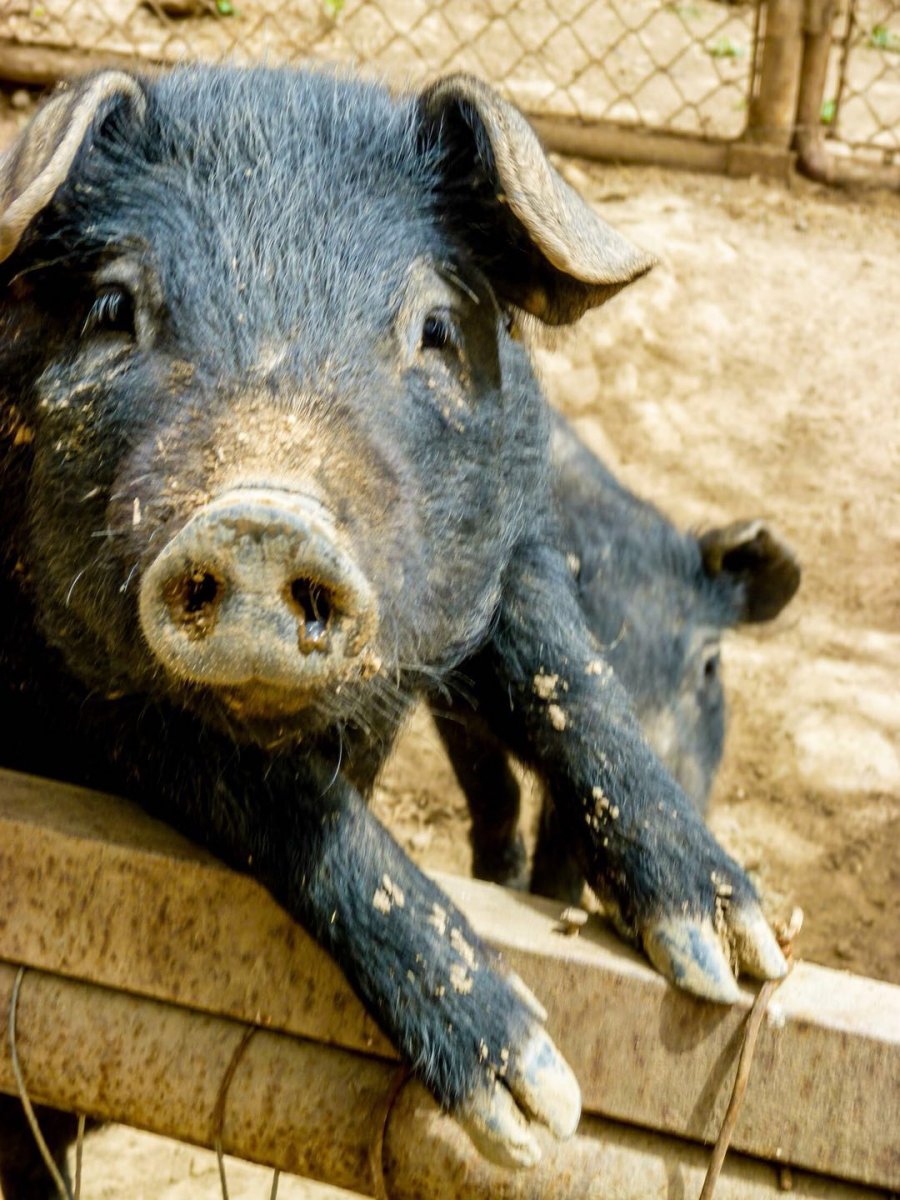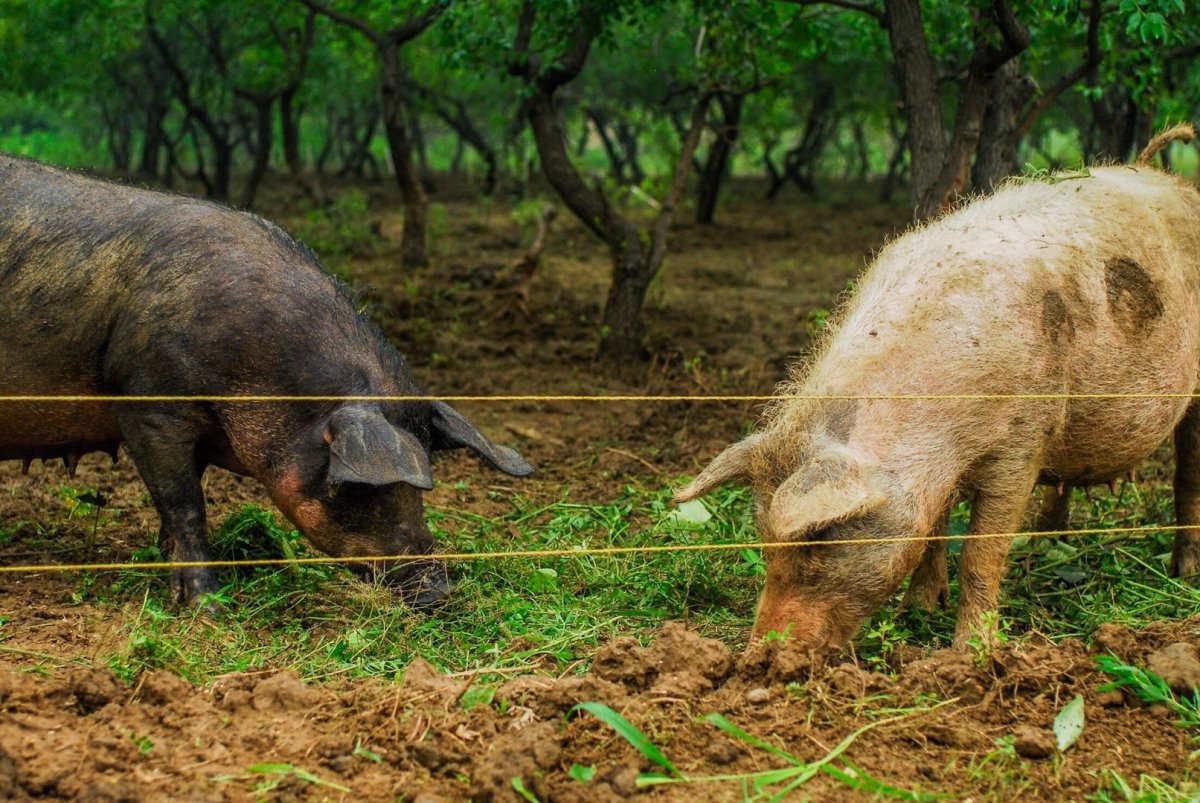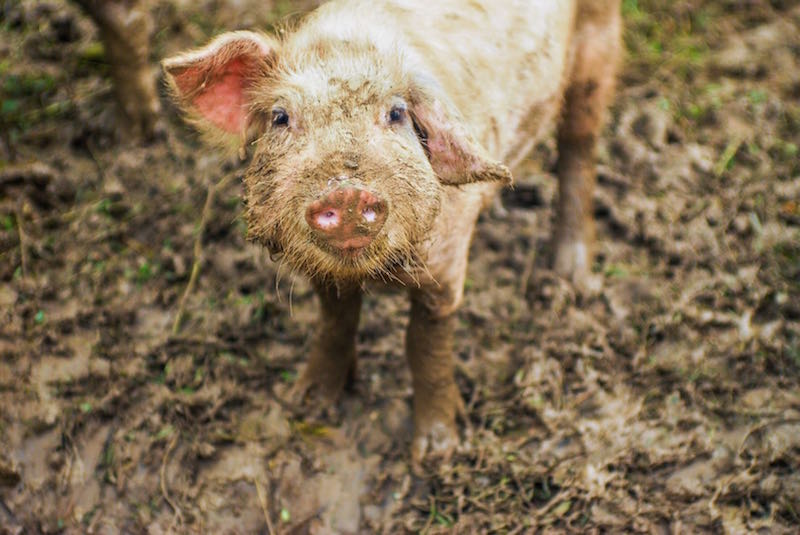Despite the Shutdown of Their Shunyi Farm, Mrs Shanen's and Green Cow City Café to Soldier On
Despite the authorities’ sudden ban on the farm animals that supplied their restaurants’ wares, chef Lejen Chen says Green Cow City Café and Mrs. Shanen’s will soldier on.
Chen – an American citizen who co-runs the well known Shunyi dining havens, and the farm in Beijing’s outlying Donggezhuang village with her Chinese husband, manager Shan’en – were given a verbal warning by local officials during the Golden Week break to remove their 200 chickens, 28 pigs, 20 geese, and 15 cows from the farm in a mere five days. It was a jarring development that threatened one of Beijing’s longest running food and beverage businesses, Mrs. Shanen's opening as a bagel shop in 1997 before growing to incorporate the organic farm and then a second café, Green Cow City, in 2014.
After that first day’s warning, Chen says officials returned the next day and said: “If you won’t do it [remove the animals] we’ll dig a big hole and bury them alive.” She adds, “That’s when we knew they were serious, and it wasn’t just a miscommunication.”
READ: Q&A With Lejen Chen about Green Cow and Mrs. Shanen’s Pizzas
“It’s been a heartbreaking experience,” Chen told the Beijinger about all the turmoil, because it not only affected her family business but also the animals that they had spent years raising. Some of those animals had been raised on the farm for three to four generations, and some are extremely rare breeds that Chen had sought out from far-flung locales, like her sows from Inner Mongolia.

The lack of a written order or paperwork, aside from a sign hung from outside their farm gates, the tight timeframe, and the aggressive manner in which the authorities carried out the procedure all compounded Chen and her cohorts’ difficulties. They were left reeling by the authorities’ use of a bulldozer to tear up and remove a concrete patch that was used to teach children (many of them international students that tour the farm with their teachers) how to shuck corn, turn cotton into paper, milk cows, and to dry seeds and corn. The officials also laid out strict stipulations that compelled Chen and the others to remove not only their livestock but also materials like picnic tables, cups, bowls, and hot water heater. Other orders included farmers only being allowed on the premises during the daytime, except a sole farmer to guard the premises by night.
Chen and the others scrambled in the ensuing days and managed to scrape together a contingency plan, albeit one that was far from ideal. In an Oct 5 Facebook post-Chen described the frantic scene as a “Green Cow Farm Noah's Ark” of sorts, as a grand total of three cows, a handful of geese and a dozen chickens along with a few of their pigs were successfully moved to a temporary farm. Among their losses in that disarray, however, were the remaining chickens that had to be slaughtered early, in order to at least make use of their meat, despite being months away from the maturity needed to lay the eggs that Chen was counting on. Chen also managed to find a buyer for their four remaining sows in New York State.
When asked, Chen said she was unsure about the reason for the authorities’ swift and strict action. In terms of the farm’s paperwork and bonafides, she says she and Shan'en have a contract that clearly states the land is farmland, adding: “We’ve had our farm for 14 years and four years ago the contracts were updated. After all this time no one said couldn’t raise animals, which we took for granted, because if you farm you have animals to fertilize the soil, and all neighboring farms had them, though now they don’t.”
As of press time, the Beijinger could not reach Donggezhuang village authorities for comment. However, updated farm animal restrictions were issued by the Beijing authorities in June 2016. The restrictions applied to reservoir areas for drinking water, areas near river basins, areas near major scenic spots, natural reserves, residential areas, and populated areas with cultural educational scientific institutions. By Sept 2017, state media reported that 1,900 farms did not meet the new standards, and were forced to close down.
On Thursday (Oct 11), Chen said she found a document detailing the officials’ action plan for farm animals. “But there should be a distinction between our animals and factory farms,” she said.

Despite this being a “drastic reduction” in their livestock, Chen said they have relocated their remaining animals to space loaned to them on a friend’s farm. That setup will allow Green Cow City Café and Mrs. Shanen’s to continue for now, which Chen and the others are determined to do.
When the dust literally settles at the farm, Chen hopes to somehow return and salvage the operation. She said that tenacious motivation is due to the “14 years it took for us to get the soil to where it is today. It would be good to continue the farm in some other form, maybe by partnering with an international school or with an international organization or local government agency. We’re open to making it work so we can preserve the farm, not just for our animals and our business, but also because we feel putting on tours for international students each autumn and spring is an important service for the expat community.”
Get the scoop on Beijing's latest openings and closings, right here.
Additional translation by Huang Chenkuang
More stories by this author here.
Email: kylemullin@truerun.com
Twitter: @MulKyle
Instagram: mullin.kyle
Photos courtesy of Lejen Chen, Elli Shanen


